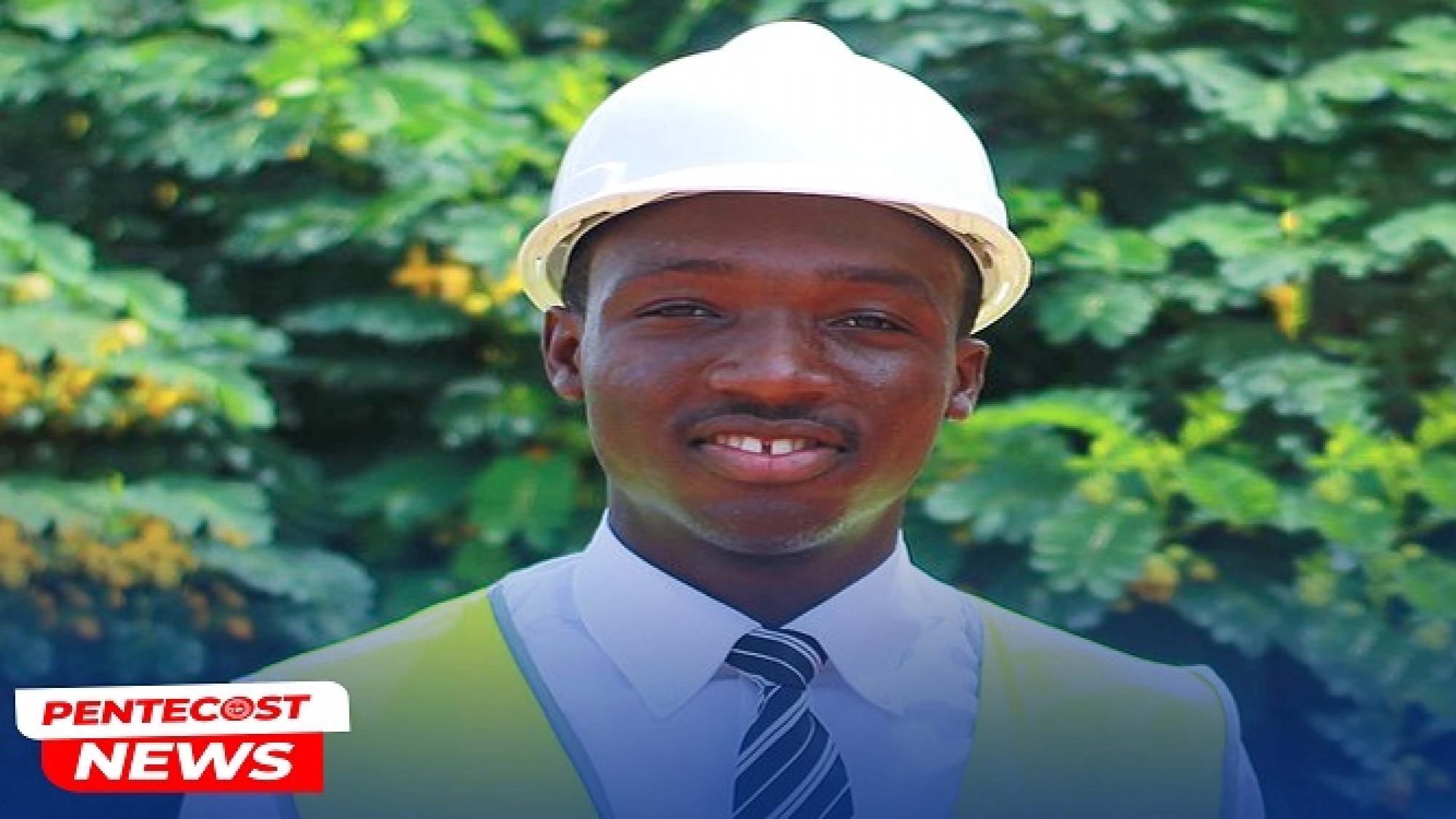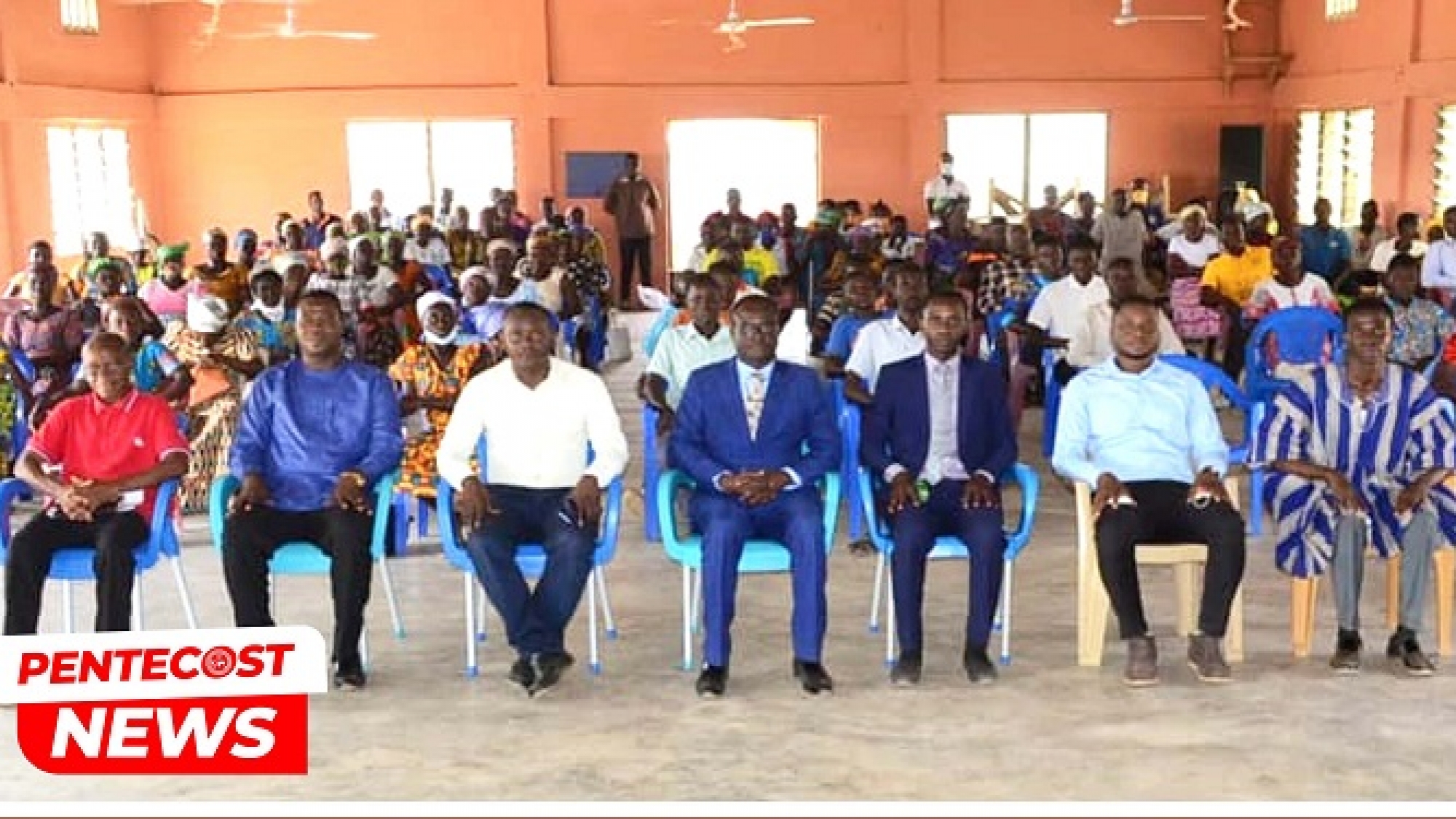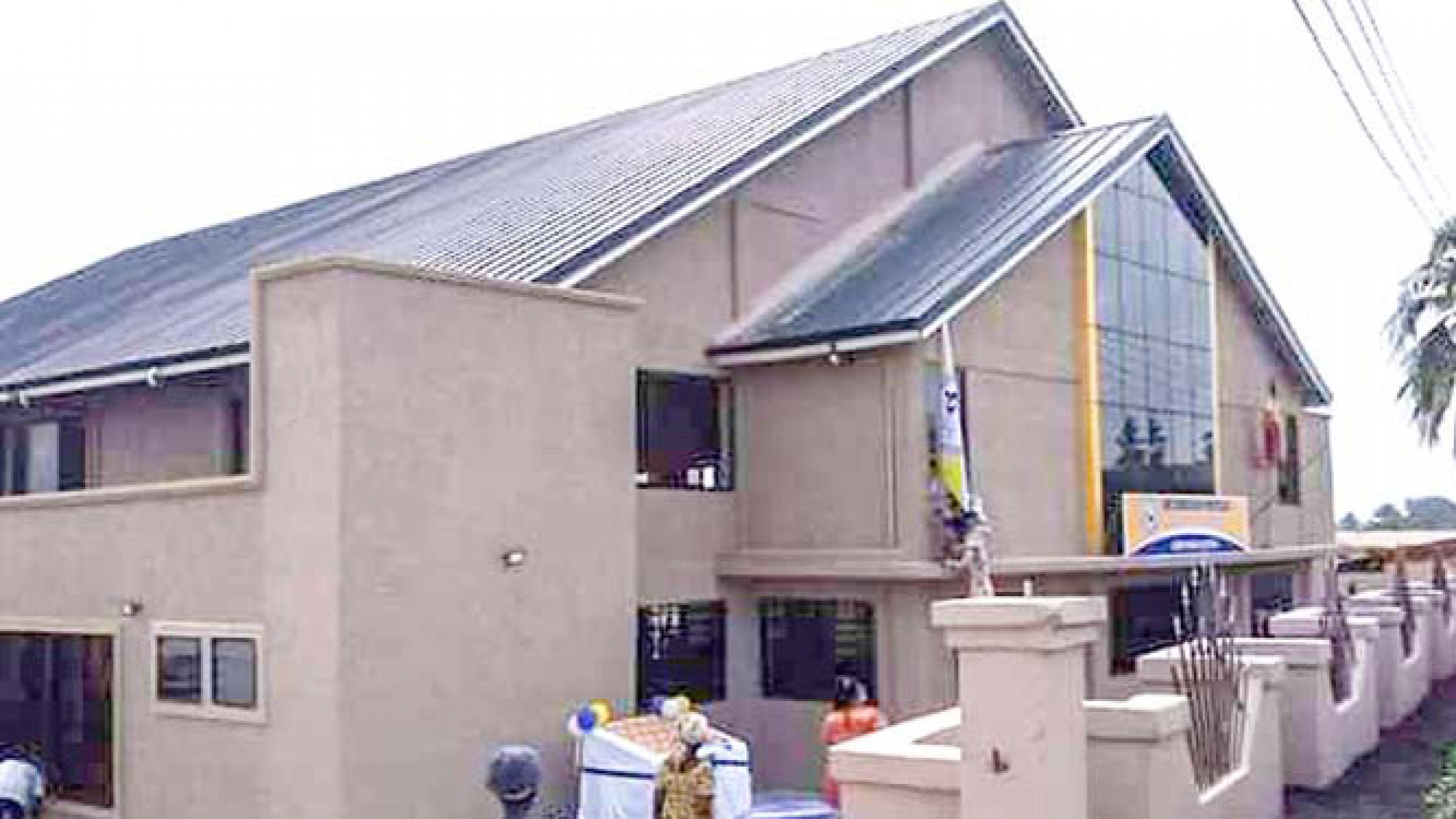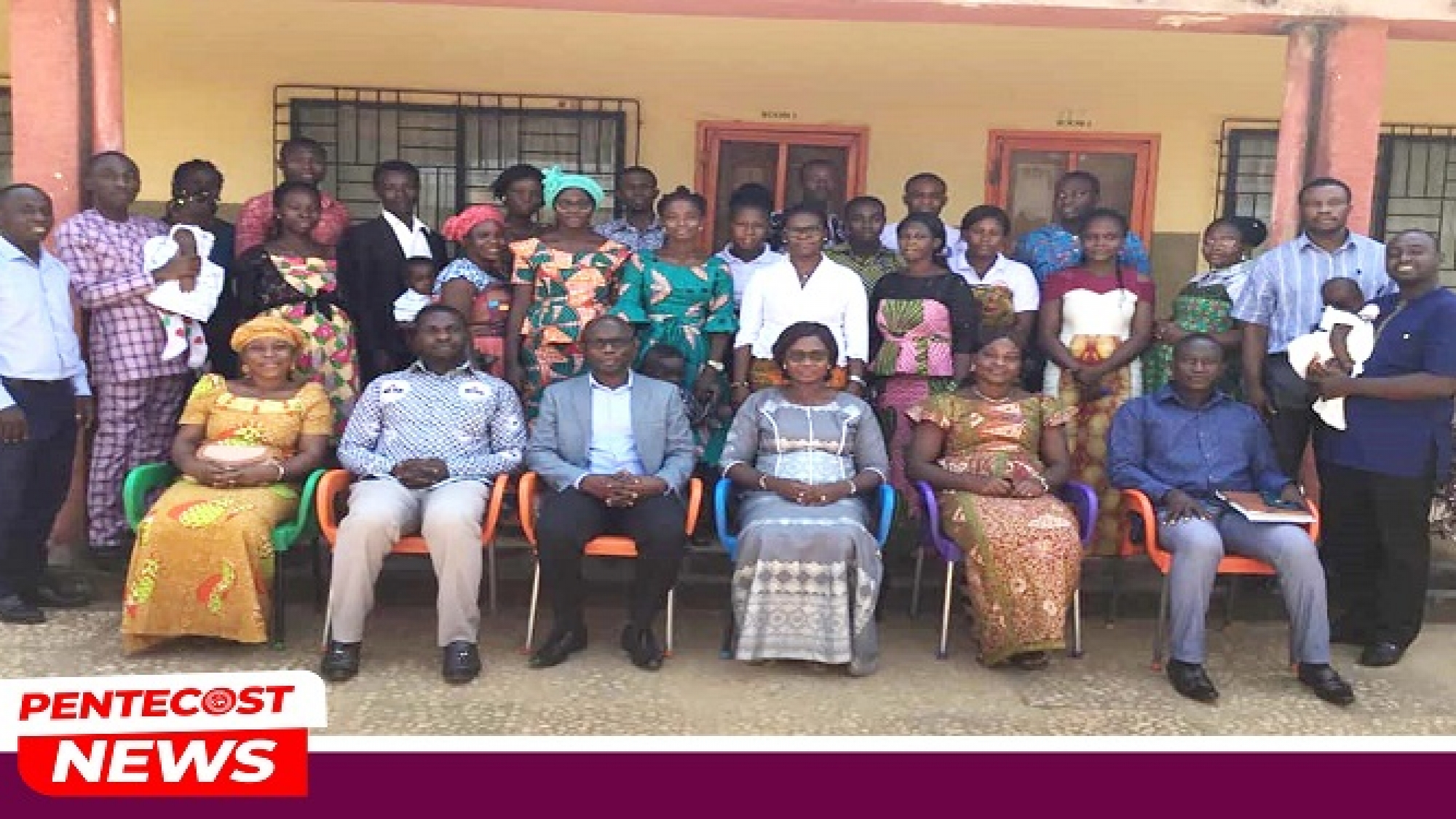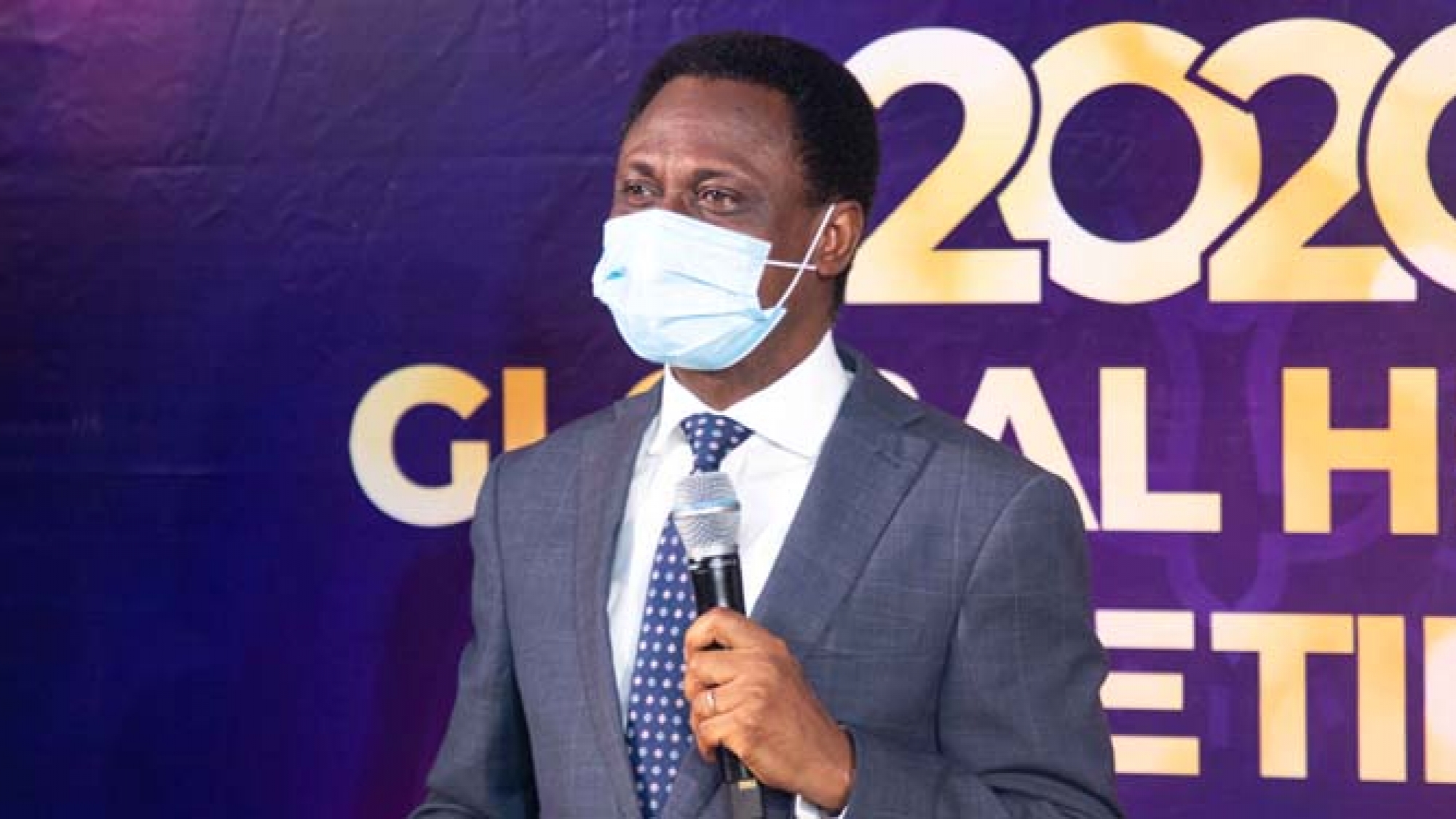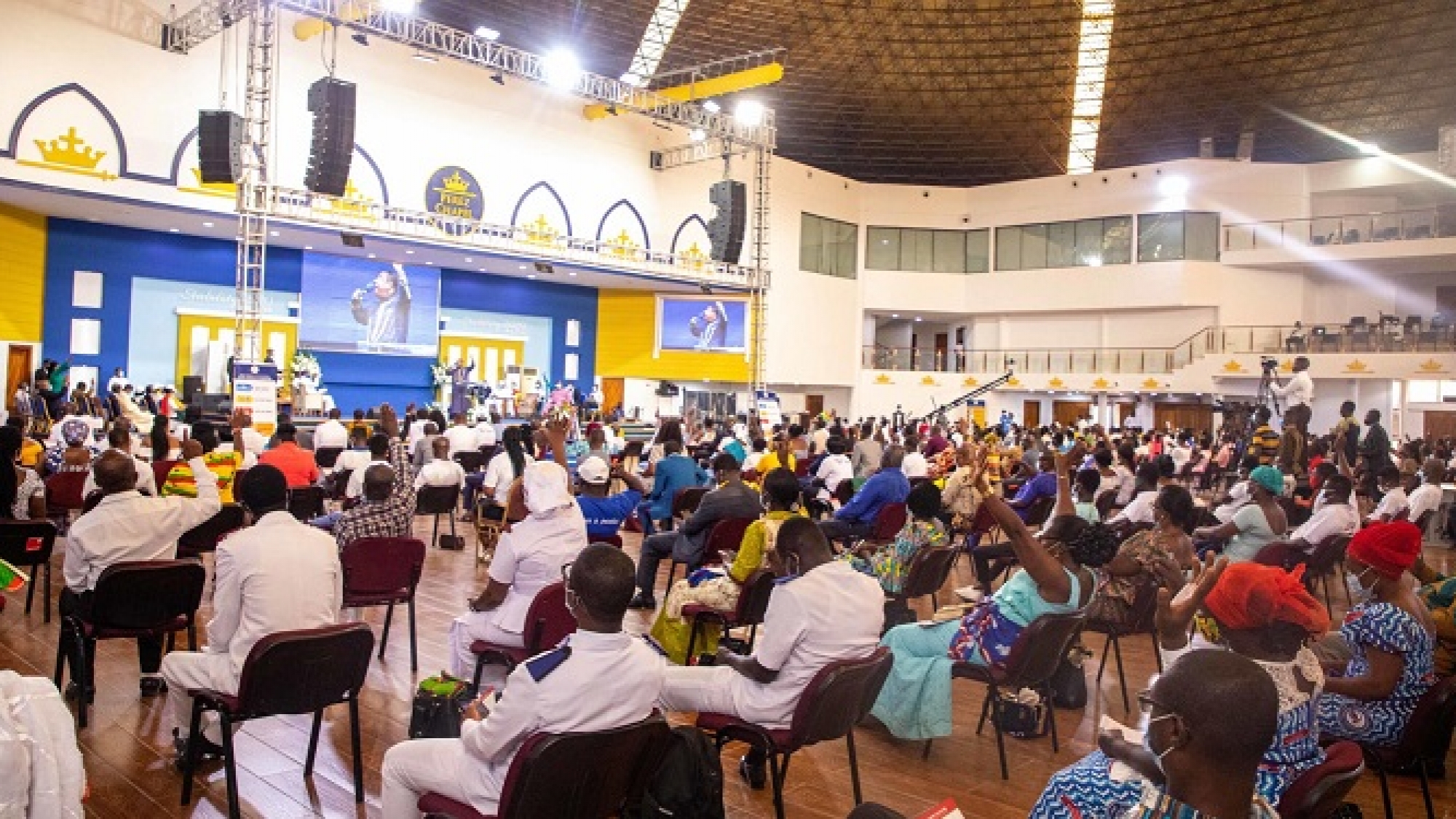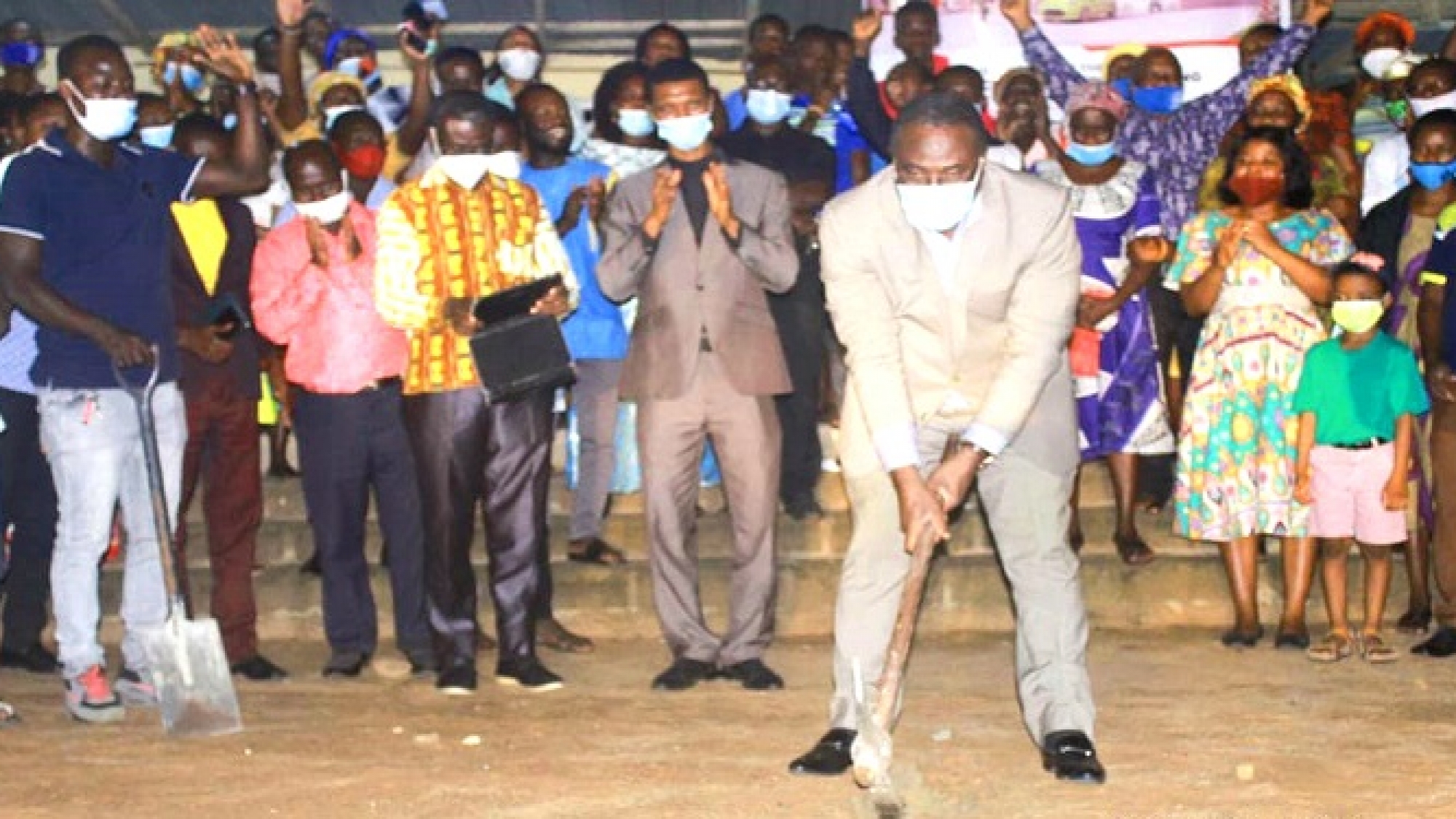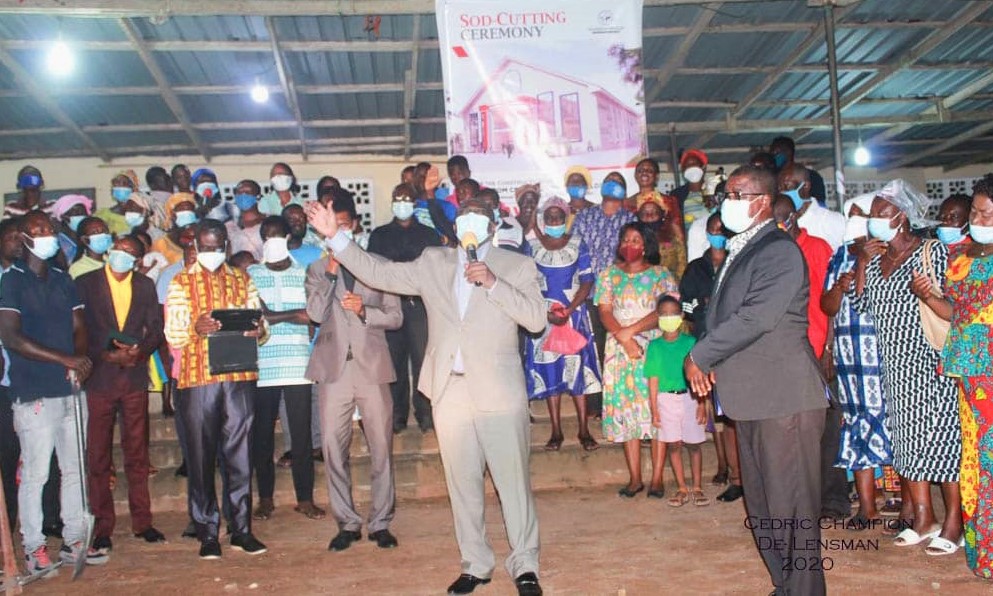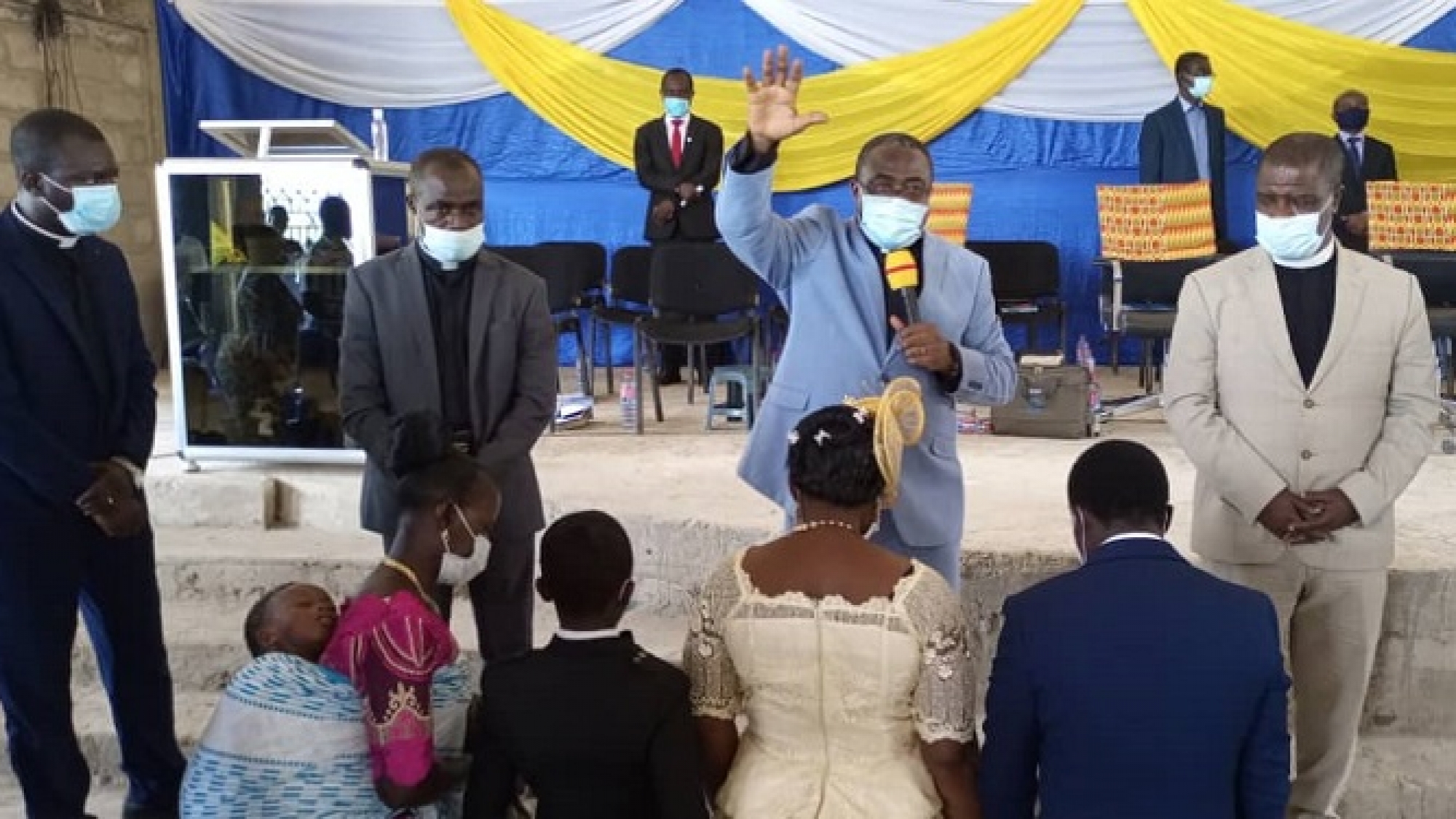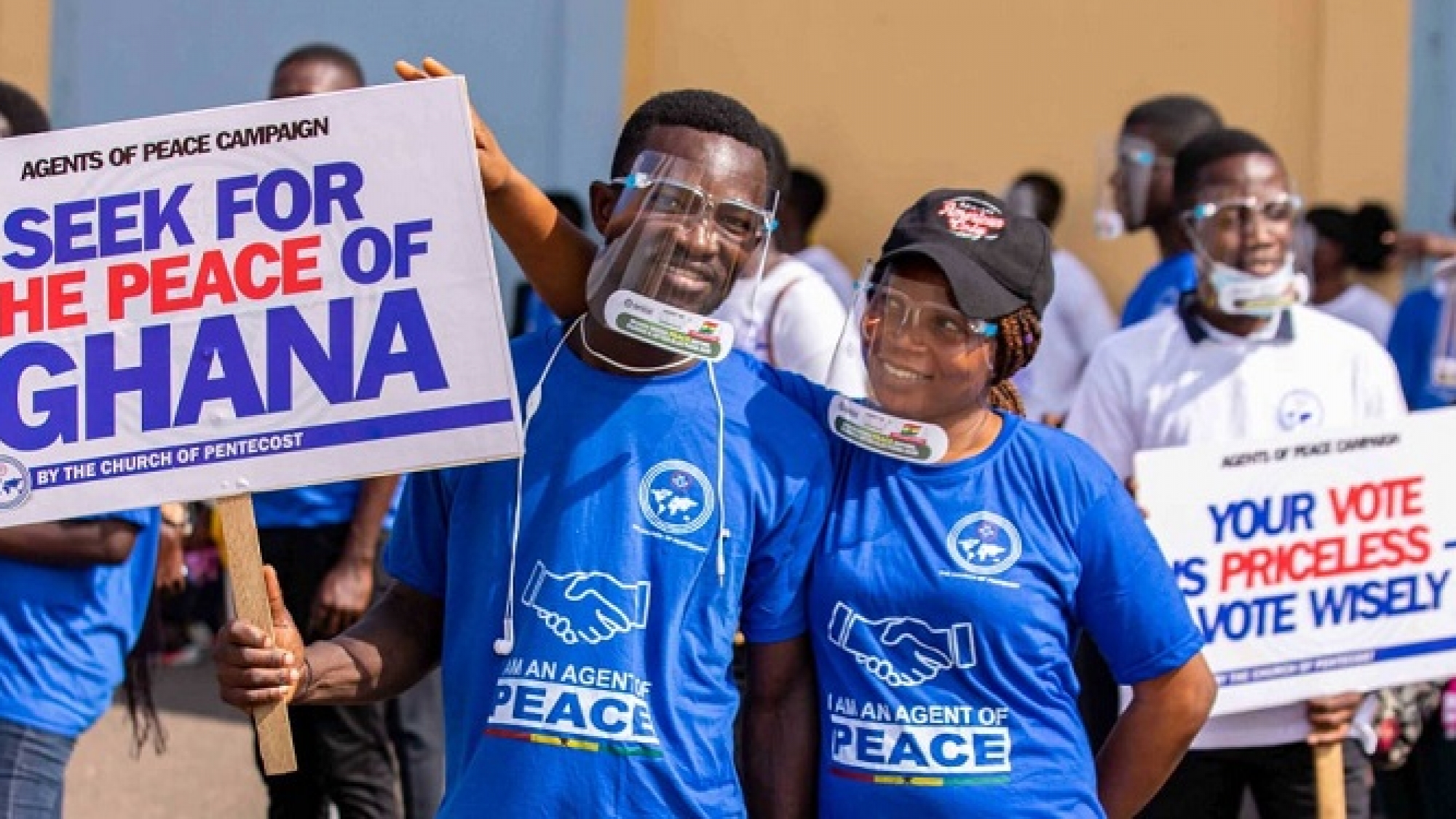A thanksgiving service was held yesterday [Sunday, November 29, 2020] to climax the weeklong national fasting and prayer exercise for the upcoming elections organised by the Christian Ecumenical Council in Ghana.
The event, which was held at the Perez Dome in Accra, was attended by the various Heads of Churches including the Most Rev. Dr. Paul K. Boafo (Chairman of the Christian Council of Ghana), Rev. Prof. Paul Frimpong Manso (President of the Ghana Pentecostal and Charismatic Council), Archbishop William Duncan Williams (President of the National Association of Charismatic and Christian Churches) and the host minister, Most Rev. Dr. Charles Agyin-Asare.
The Church of Pentecost was also well represented at the event by the Chairman of the church, Apostle Eric Nyamekye, the General Secretary, Apostle Alexander Nana Yaw-Kumi Larbi, the Anyaa Ablekuma Area Head, Apostle Samuel Gakpetor, and other ministers of the church.
Other notable attendees were Rev. Dr. Cyril Fayose (General Secretary of the Christian Council of Ghana), Bishop Gideon Titi-Ofei (General Secretary of the National Association of Charismatic and Christian Churches.), Apostle Dr. Aaron Ami-Narh (President of the Apostolic Church, Ghana), and Rev. Dr. Joyce Aryee (Founder and Executive Director of Salt & Light Ministries), among several others.
Addressing participants at the event, Most Rev. Dr. Boafo, the Chairperson of the Christian Ecumenical Council of Ghana, which comprises the Christian Council of Ghana (CGC), Ghana Pentecostal and Charismatic Council (GPCC), Ghana Catholics Bishops’ Conference (GCBC), Ghana Charismatic Bishops’ Conference (GCBC), National Association of Charismatic and Christian Churches (NACCC) and all other churches and Christian organisations in Ghana, said the event marked a historic period in the history of Ghana and Christian bodies in the country. This, according to him, is because for the first time all Christian bodies have come together to commit to peace and organise a national prayer and fasting exercise towards a successful general election.
He said that the exercise was necessary because scripture enjoins Christians to always pray for the prosperity of the nation.
The Presiding Bishop of the Methodist Church of Ghana also noted that the unity of the Body of Christ is a clear demonstration to the Ghanaian citizenry that despite their obvious differences, they could still live in peace come December 7 and beyond.
“As a people, although we come from different denominations and political backgrounds, there is one common denominator, and that is, we are all created in the image and likeness of God. For this reason, the values of human dignity, such as care, kindness and love, should be our guiding principles in our relationship with each other,” he said.
He, therefore, called on Ghanaians to desist from any form of violence before, during and after this year’s elections and rather commit to protecting and deepening the democratic base of the nation.
Exhorting the audience on the topic; “Shalom,” with 1 Corinthians 14:33, Jeremiah 29:7, 1 Timothy 2:1-3, Deuteronomy 33:27-28 and Philippians 4:6, as Scripture references, Archbishop Duncan Williams explained that God is not the author of chaos, rather it is the devil who employs it to destabilise the world. Hence, in order to obtain peace, Christians must deal with the root cause, who is the devil.
He further noted that for many years the United Nations and other organisations have failed in their quest to establish world peace because of their approach to broker peace through negotiation and not by the Prince of Peace, who is Jesus.
He asserted that “Peace is not obtained through negotiation. Peace is not a commodity. He is a personality; Jesus is the Prince of Peace, and for this reason, there shall never be peace until Jesus is brought to the table.”
He added that “peace is important because it brings tranquillity; tranquillity brings stability; stability promotes creativity; creativity leads to productivity and productivity leads to prosperity. So, until the nations of Africa obtain peace on the continent, there will be no prosperity.”
Archbishop Duncan Williams, therefore, urged Christians to rise in prayer and confront the evil forces that promote chaos in the nations. He also urged Christians to pray that the counsel of the Lord will determine the outcome of this year’s elections.
As part of the event, prayers were offered for the key stakeholders of the electoral process (Election Commission, presidential and parliamentary candidates) as well as the various arms of government, security agencies and the media.
Representatives of the various political parties were also invited to pledge their commitment to peaceful elections.
Mr. Laud Bondzie of the Soul Winners music group, Pastor Joe Beechem, Daughters of Glorious Jesus, and Rev. Bruce Ghartey (Uncle Ato) also ministered to the participants in songs.
The Christian Ecumenical Council declared a weeklong non-denominational fasting and prayer exercise [from Wednesday, November 25 to Sunday, November 29, 2020] for national peace before, during, and after the general election to be observed in churches across the country under the theme: “Seek Peace and Pursue It” (1Peter 3:11).
Thanksgiving services were also held at the regional levels at the various Jubilee grounds across the country.
PENTECOST NEWS





